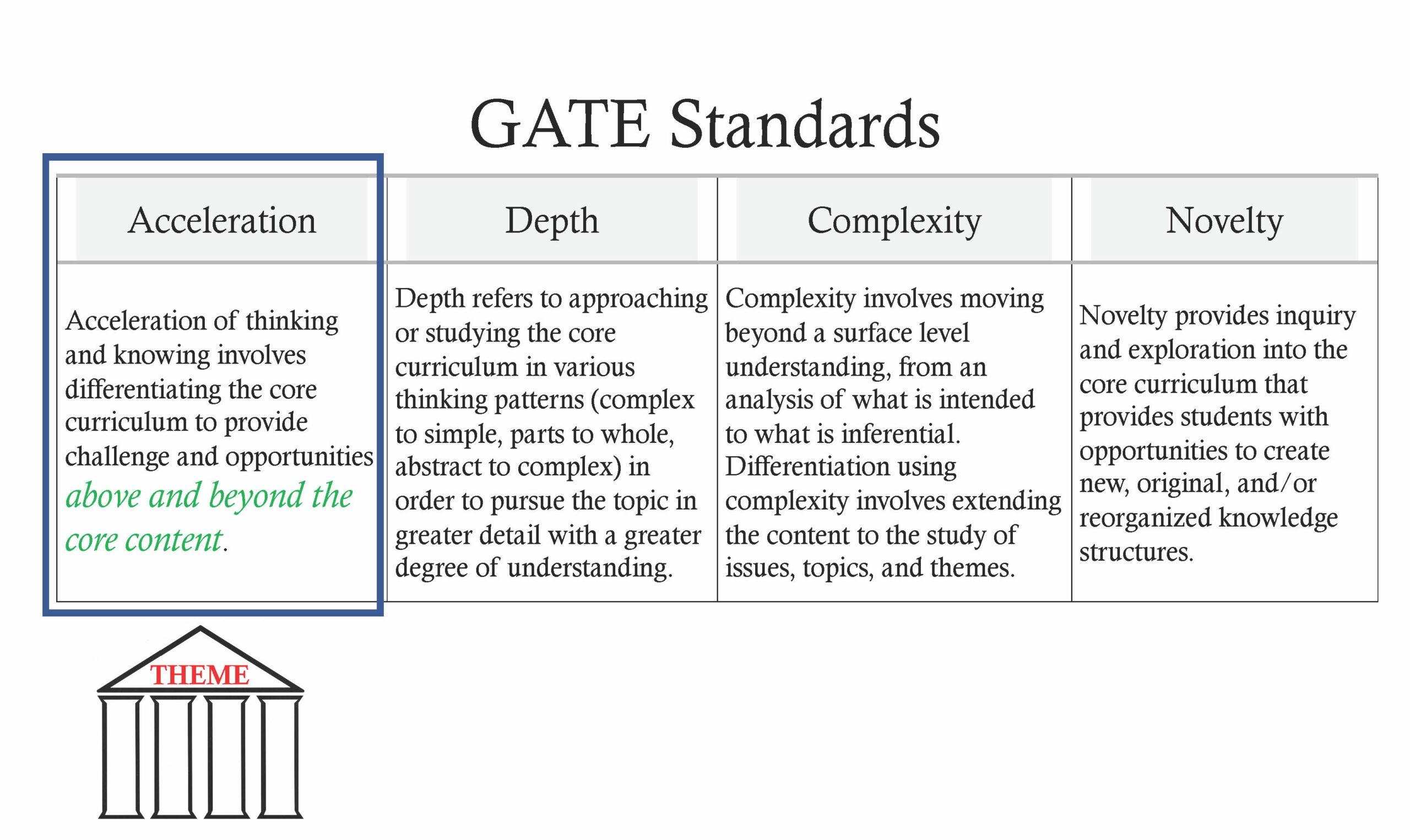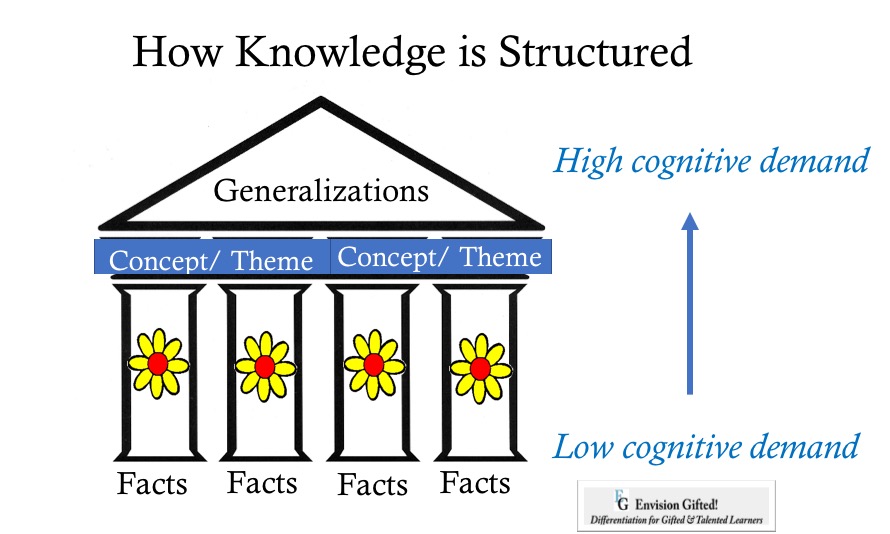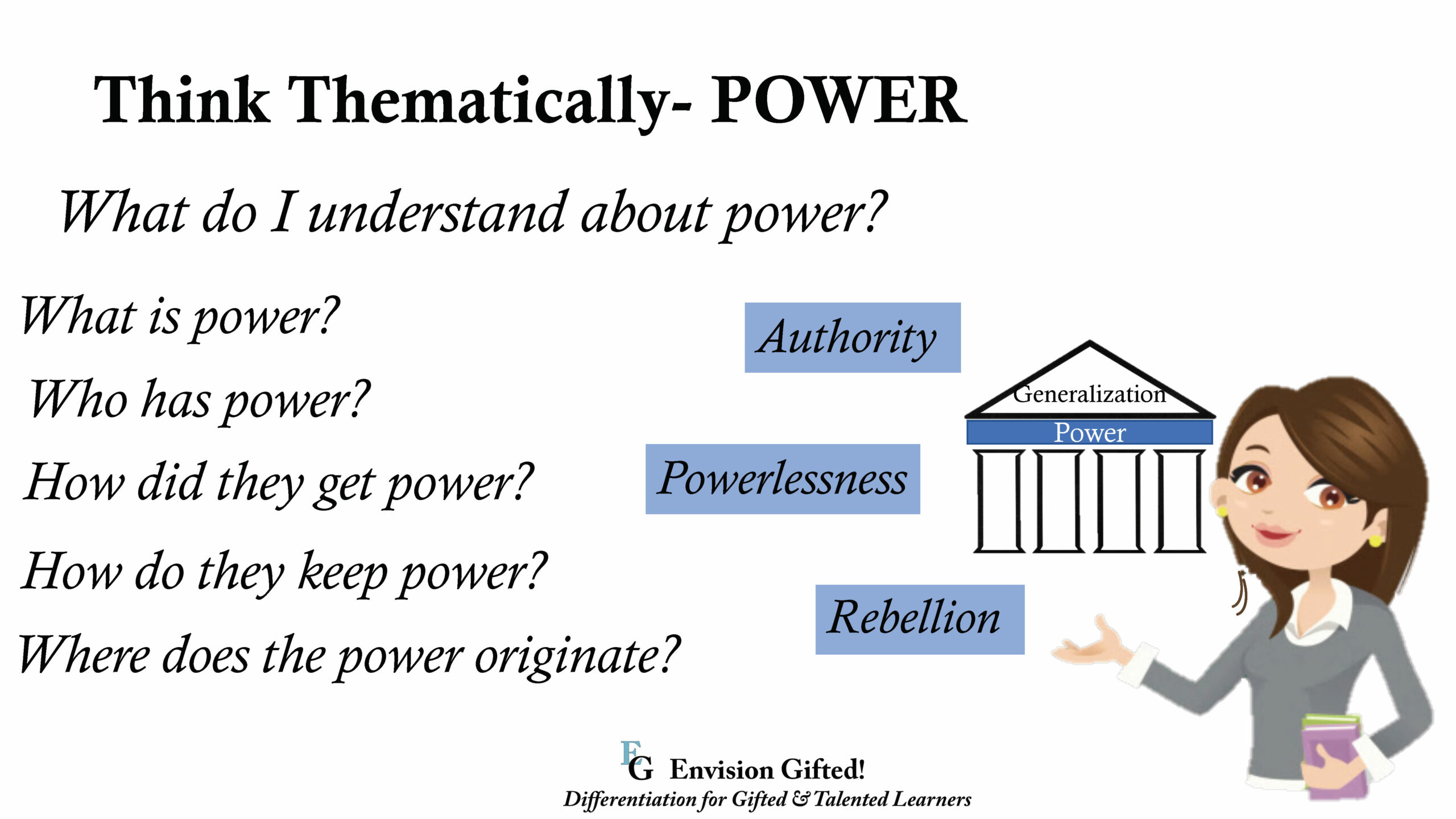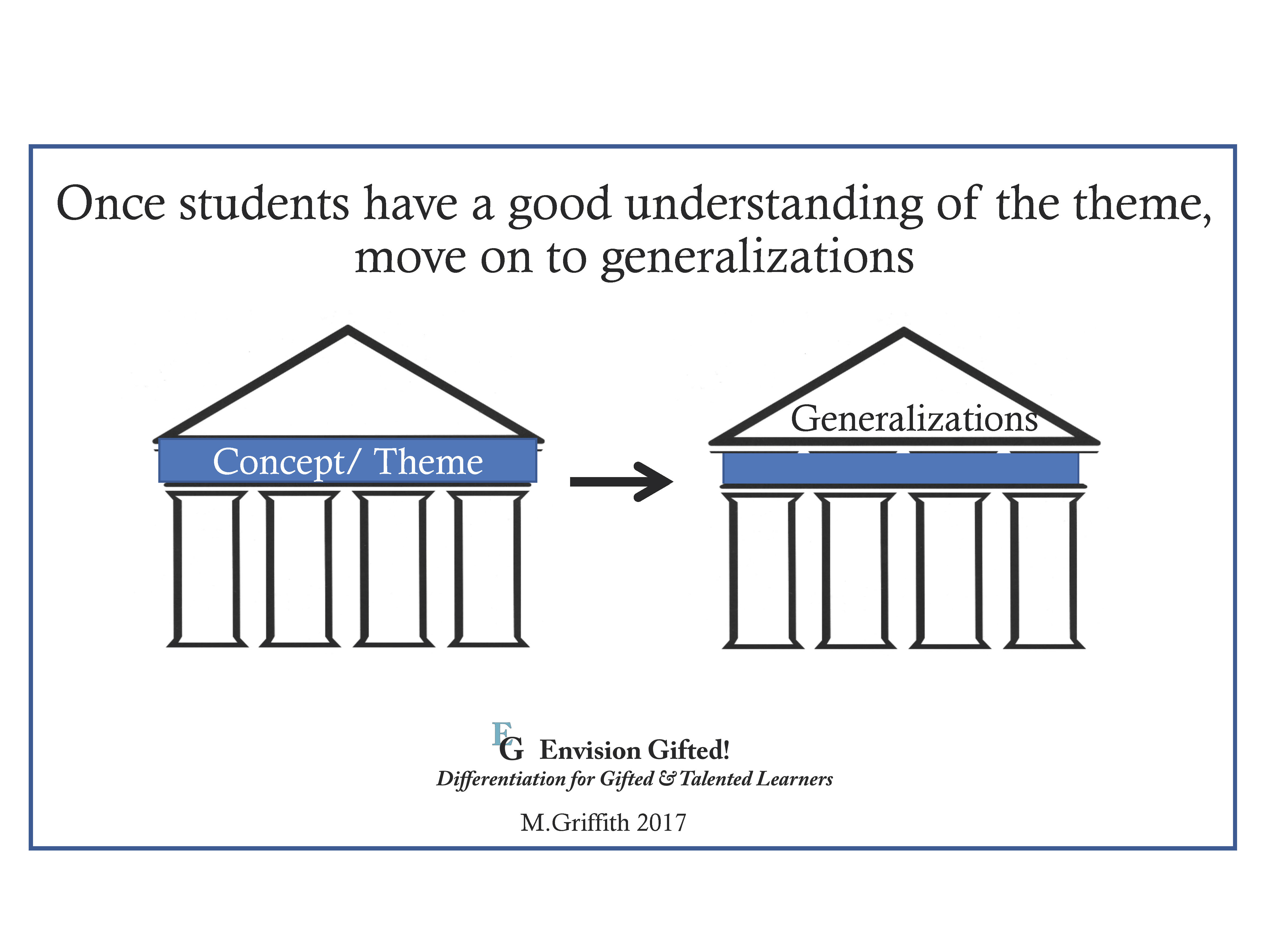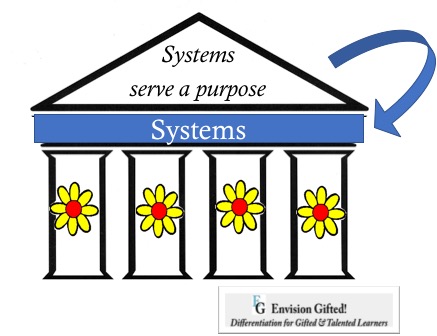*New- Universal Themes and COVID-19
Universal Themes and Generalizations
Universal Themes falls under the category of acceleration for GATE Standards, pushing students above and beyond the core content.
Universal themes and generalizations are tools used to help build flexible thinking, make connections across broad, seemingly unrelated things, and create a structure for providing evidence to support thinking.
What is a Universal Theme?
A universal theme is an organizing concept that transcends time and place, and brings focus to learning across subject areas.
Teaching with universal themes is very different from traditional thematic teaching. With traditional thematic teaching, the teacher does all the cognitive work. He or she selects the theme, for example- Oceans, and also makes the connections between that theme and all its components (whales, fish, marine plants, etc). The students really don’t have to do much other than learn the content.
When teaching with universal themes or concepts, students are given a theme and what appear to be unrelated ideas. Students are required to examine those id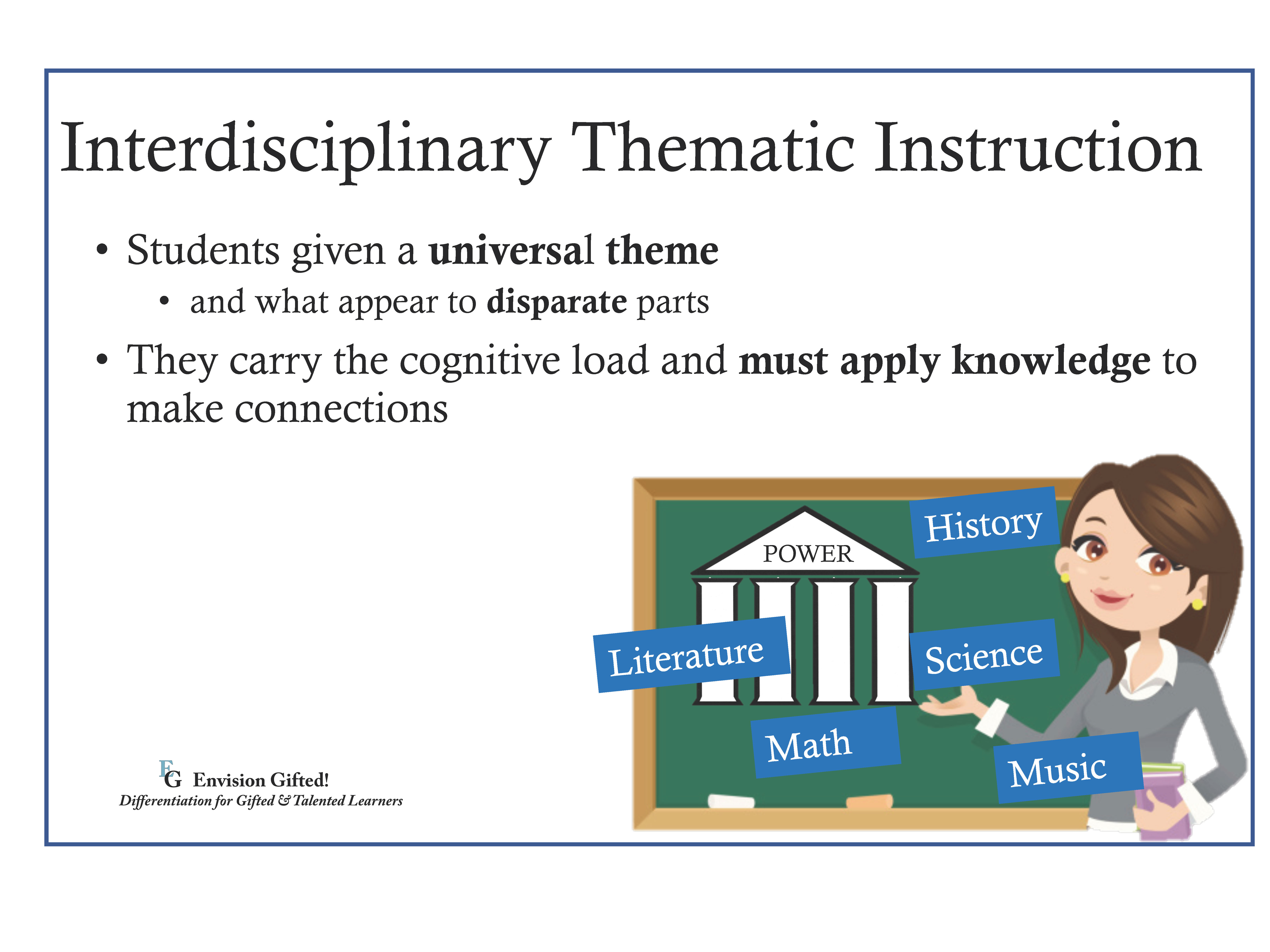 eas closely and determine how the ideas relate to the theme.
eas closely and determine how the ideas relate to the theme.
RELATIONSHIPS
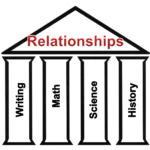
In this example, the theme is Relationships. Students must make connections between Relationships and and the topics writing, mathematics, science, and social studies.
We see relationships in math in fractions, decimals, and percents; in science in chemical reactions or the relationship between preditor and prey; in writing in the relationship between word use and impact on reader or the relationship between a writer’s effort and the final product; and in history… relationships abound!
Starting the Year with Universal Themes
So, you’ve been given a universal theme for the year, but how do you get started? As an educator, it’s important for you to think thematically. Challenge yourself to explore the theme, so you are better prepared to lead your students in their journey. You can find more prompts for thinking thematically for each universal theme on their unique pages. Here- Universal Themes Throughout the Year.
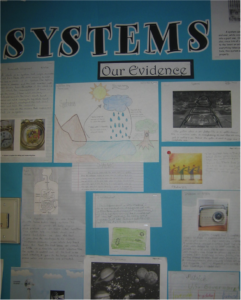 SYSTEMS
SYSTEMS
I always introduce the universal theme on the first day of school. This is the theme that we would examine through the year. We work together to define the theme in our own words before seeking the expert definition (dictionary). The only homework that night (yes, homework on the first night) was to prove with evidence the universal theme. In the example on the left, our universal theme was Systems.
I deliberately avoid giving a lot of structure for this homework assignment, because I want the students to feel free to be creative in demonstrating their understanding.
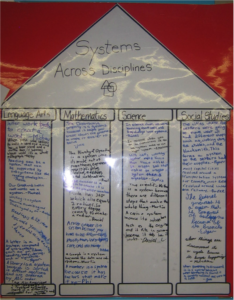 Students share their evidence with the class on the following day. Although the sky is the limit with what students can do, that first homework assignment more often than not, is an obvious example with an image (either drawn or pulled from the computer) and a written explanation.
Students share their evidence with the class on the following day. Although the sky is the limit with what students can do, that first homework assignment more often than not, is an obvious example with an image (either drawn or pulled from the computer) and a written explanation.
This is because that for many of them, this format falls within their comfort level and is also what they believe we as teachers expect from them. Fortunately, a few brave students will do something that is totally out of the box.
The out of the box examples are truly powerful because they demonstrate to the other students that creativity and out of the box thinking are welcome and celebrated. After students have a grasp on the theme, have them move on to proving generalizations about the theme.
Generalizations
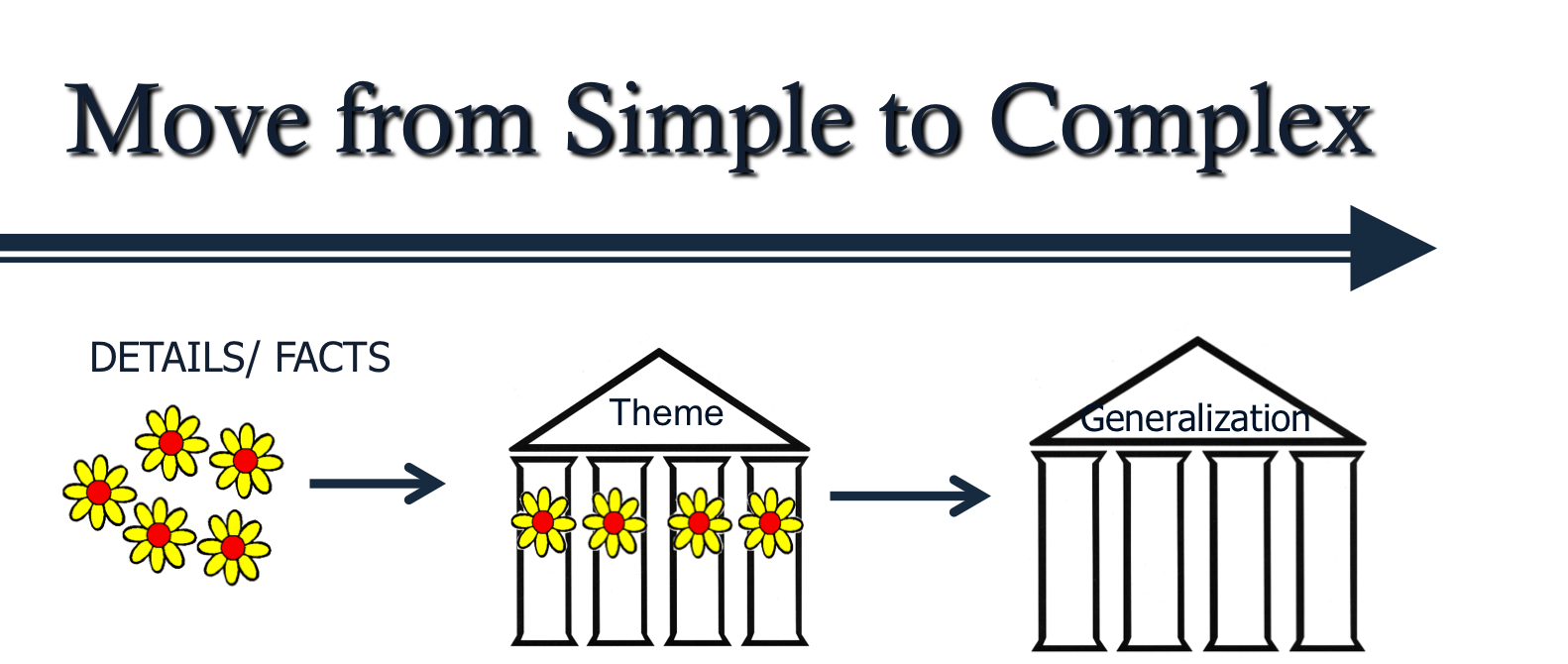
A generalization is a statement built on a universal theme andcan be proven to be true most of the time. Generalizations are ideas and deeper understandings that give meaning to a concept. They are overarching statements that require high cognitive demand.
Just like universal themes, these transcend time and place and can be applied across academic disciplines.
Both universal themes and generalizations require students to employ complex thinking. This is in contrast to simple acquisition of facts and details about a concept.
Sample Generalizations- Systems:
Systems have parts that work to complete a task
Systems are composed of sub-systems
Part of systems are interdependent upon one another and form symbiotic relationships
A system may be influenced by other systems
Systems interact
Systems follow rules
MORE! Applying Universal Themes and Generalizations Throughout the Year
